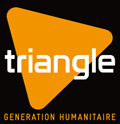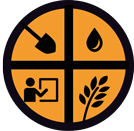September 2022 / August 2023
Tilapias fish farming pilot project in Sahrawi refugee camps (Extension)
This latest phase of the fish farm project aims at improving the resilience of the Sahrawi population through the local production of fish and enables the dissemination of fish farming to the Saharawi refugee camps.
Read more...
December 2021 / November 2022
Support for the development of environmental health conditions in Sahrawi refugee camps
The cleaning of the soil aims to benefit the whole population by improving the environmental hygiene conditions in the Saharawi refugee camps. In addition, and with a view to providing opportunities for young people in the Saharawi refugee camps.
Read more...
January 2020 / March 2021
Improve the school environment in the Sahrawi refugee camps in the Tindouf Region
Sahrawi refugees living in five camps in the Tindouf region of Algeria almost exclusively rely on humanitarian aid. Moreover, the climatic conditions are extremely harsh in the region (intense heat, drought, wind, rain, flooding, etc.).
Read more...
September 2019 / February 2021
Pilot project for tilapia fish farming in Sahrawi refugee camps, Tindouf Region
The fish farm of N Khaila was built under previous funding from the World Food Programme (WFP) within the "Houcine Tameuk" agricultural cluster where activities contributing to the resilience of Sahrawi refugees in the Tindouf Region of Algeria are implemented.
Read more...
October 2019 / January 2021
Support for food diversification and nutrition in Sahrawi refugee camps
This project is part of a wider programme implemented by TGH for more than a year in the food security and livelihoods sector. With the financial support of the WFP, the association has supported the construction of a fish farm in a Sahrawi refugee camp, which is now operational.
Read more...
January 2019 / December 2019
Assistance to the most vulnerable groups of Sahrawi refugees
The TGH programme for the year 2019 - in collaboration with UNHCR and the Lord Michelham of Hellingly Foundation - follows on from previous annual programmes in the 5 Sahrawi refugee camps in the Tindouf Region. The beneficiary population is made up of refugees from Western Sahara.
Read more...
December 2018 / December 2019
Improving the school environment for all Sahrawi refugee camps
This project aims to rehabilitate the schools that have been affected by severe weather and to improve teaching and learning conditions and the number of school facilities in the Sahrawi refugee camps.
Read more...
January 2018 / December 2018
Tilapias fish farming pilot project in Sahrawi refugee camps, Tindouf Region
The programme provides for the construction and operation of a pilot fish farm in the wilaya of Smara in order to contribute to the development of local production of diversified food resources in Sahrawi refugee camps.
Read more...
January 2018 / December 2018
Assistance to the most vulnerable groups of Sahrawi refugees in the Tindouf Region
This programme aims to improve access to humanitarian assistance for 90,000 Sahrawi refugees living in 5 camps in the Tindouf Region, in south-western Algeria, by meeting their basic needs.
Read more...
July 2017 / January 2018
Supporting the rehabilitation of educational facilities and sanitation systems / latrines
Rehabilitation and reconstruction of the educational facilities affected by adverse weather conditions, taking into account the needs in terms of water, hygiene and sanitation (latrines and sanitation in schools).
Read more...
January 2017 / December 2017
Assistance to the most vulnerable groups of Sahrawi refugees living in the Tindouf area
Improving access to humanitarian assistance for 90,000 Sahrawi refugees living in five camps in the Tindouf area in south-western Algeria.
Read more...
March 2016 / August 2017
Assistance to vulnerable Sahrawi refugees living in the camps South of Tindouf
This program ensures the continuity of the management of the mechanical workshop set up by TGH in 2015, maintains the assistance provided to persons with disabilities, and continues to ensure the security management for aid workers, in order to facilitate their daily activities.
Read more...
February 2016 / August 2016
Rehabilitation and reconstruction of the educational and health facilities
This second phase after the torrential rains that hit the 5 camps located in Tindouf area in Octobre 2015, focused on the reconstruction and/or rehabilitation of 10 health and educational facilities to allow people to regain proper access to these services.
Read more...
January 2016 / December 2016
Assistance to the most vulnerable groups of Sahrawi refugees living in the Tindouf area
Improving access to humanitarian assistance for 90,000 Sahrawi refugees living in five camps in the Tindouf area in south-western Algeria.
Read more...
November 2015 / September 2016
Emergency response and reconstruction for the Saharawi populations affected by the torrential rains
Following the floods that affected Saharawi refugee camps, this first aid project aims to take part in the reconstruction of homes and provide a food supplement to the population.
Read more...
May 2014 / April 2015
Assistance programme to vulnerable Saharawi refugees living in the camps south of Tindouf
This programme aims to maintain efficient logistics means and target in priority the most vulnerable beneficiaries (including disabled people). It is divided into three areas of intervention .
Read more...
January 2014 / December 2014
Support to most vulnerable groups of Saharawi refugees
This action aims to improve access for a humanitarian assistance addressing the basic needs of Saharawi refugees living in camps in the Tindouf area. The different programme components are: mechanical workshop, disability, health, hygiene and management of the UNHCR bases of Weather Haven and Dakhla.
Read more...
January 2013 / December 2013
Support to Saharawi refugees
This is a prolongation of the UNHCR-sponsored programme launched in 2001. All 2010 programmes will continue through 2011 and 2012.
Read more...
May 2013 / April 2014
Assistance programme to disabled people in Saharawi refugee camps
This project is the continuation of TGH’s interventions in Saharawi refugee camps south of Tindouf (Aousserd, El Ayoun, Dakhla, Smara and Boujdour camps).
Read more...
January 2011 / February 2012
Improvement of the hygiene conditions of women and disabled people
An extension of the previous program, this project aims to improve the conditions of hygiene of Saharawi refugees. The main targets are women and disabled people living in Aoussert, El Aioun, Dakhla, Smara and 27 Février refugee camps, south of Tindouf in Algeria.
Read more...
January 2011 / December 2011
Support to Saharawi refugees
This is a prolongation of the UNHCR-sponsored programme launched in 2001. All 2010 programmes will continue through 2011.
Read more...
October 2010 / March 2011
Support to World Food Programme Schemes in Saharawi Refugee Camps
TGH partners with the WFP, in the framework of its food distribution to Sahawari populations, to build and rehabilitate 25 storage spaces for WFP's use.
January 2009 / December 2009
Assistance to Saharawi Refugees
This is a prolongation of the UNHCR-sponsored programme launched in 2001. All 2008 programmes will continue through 2009, with an intensification of medical activities (supply of radiology products and equipment), and the creation of family-run vegetable plots in Daklha.
Read more...
November 2008 / August 2009
Distribution of hygiene kits to Sahawari Women, Disabled or Elderly people
Phase II of previous programme dedicated to young Saharawi women. We plan to help young Saharawi women benefit from improved hygiene by distributing 190,000 hygiene kits containing soap, shampoo, sanitary towels, washing powder, etc.
Read more...
February 2008 / October 2009
Improve the Living Conditions and Restore Basic Livelihoods of Disabled People
This project is the continuation of our previous programmes for elderly or disabled Saharawis living in refugee camps. It aims to improve the beneficiaries' nutritional situation and provide income-generating activities through the following actions.
Read more...
September 2007 / September 2008
Purchase and distribution of hygiene kits for Saharawi women in the refugee camps
Phase II of previous programme dedicated to young Saharawi women. We plan to help young Saharawi women benefit from improved hygiene by distributing 190,000 hygiene kits containing soap, shampoo and sanitary towels.
Read more...
January 2008 / December 2008
Assistance to Saharawi Refugees
This is a prolongation of the UNHCR-sponsored programme, first launched in 2001. All programmes performed in 2007 will continue through 2008, with an intensification of medical activities (supply of radiology products and equipment).
Read more...
February 2007 / November 2007
Support to Elderly & Disabled People in Saharawi Refugee Camps
After three decades living in refugee camps, extremely precarious conditions, lack of medical care and absence of understanding about disability, all the disabled people in the camps are suffering a situation of heightened distress.
Read more...
September 2006 / September 2007
Purchase and distribution of hygiene kits for Saharawi women in the refugee camps
Phase II of previous programme dedicated to young Saharawi women. We plan to help young Saharawi women benefit from improved hygiene by distributing 190,000 hygiene kits containing soap, shampoo and sanitary towels.
Read more...
April 2006 / January 2007
Rehabilitation of Health Structures Damaged by the February 2006 Floods
In February 2006, southwest Algeria was the victim of enormous flooding and torrential rains hit the refugee camps. The day after the disaster, it was estimated that 50% of the dwellings were destroyed and 25% were on the verge of collapse leavingsome 55,000 people without shelter.
Read more...
October 2005 / September 2006
Support to Elderly & Disabled People in Saharawi Refugee
This distribution program was designed to improve the living conditions of disabled persons and elderly people in the refugee camps. Because of their age or disability, some people cannot travel to special care centres so Triangle supplies crutches, ergonomic crockery, bedding and other essential items to them directly.
Read more...
November 2005 / July 2006
Purchase & Distribution of Hygiene Kits for Saharawi Women in Refugee Camps
To reduce the risk of disease and help young Saharawi women benefit from improved hygiene, Triangle distributed 66,000 hygiene kits (containing soap, shampoo and sanitary towels).
Read more...
March 2006 / April 2006
EMERGENCY RELIEF
After the February 2006 floods
In February 2006, southwest Algeria was the victim of enormous flooding and torrential rains hit the refugee camps. The day after the disaster, it was estimated that 50% of the dwellings were destroyed and 25% were on the verge of collapse leaving some 55,000 people without shelter.
Read more...
April 2004 / December 2004
Support to Care Structures for Disabled Peoples
Supplementing the activities managed in the UNHCR-financed programme, Triangle supported various care structures for disabled people thanks to a grant from the Lord Michelham Foundation.
Read more...
December 2002 / January 2004
Creation of a Bakery
The aim of this project was to provide a group of disabled adults with a permanent activity to empower them and enable integration in the Sawary community.
Read more...


